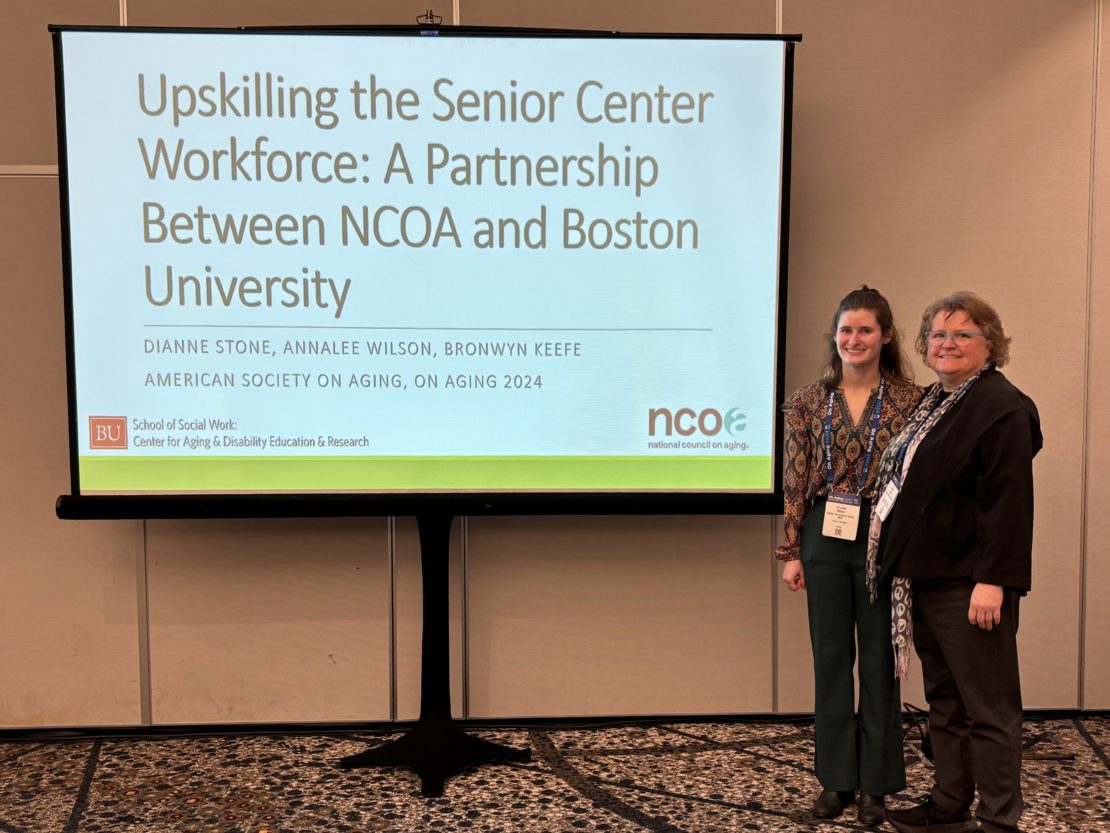News
Research Shows How Senior Centers Benefit from CADER’s Behavioral Health Training

Senior centers are the go-to location for many older adults in need of support, including older adults with behavioral health concerns such as mental health challenges or substance use concerns. Senior center staff should be trained in behavioral health and aging to empower them to identify and respond to behavioral health concerns.
With funding from the RRF Foundation for Aging, The Center for Aging and Disability Education and Research (CADER) at Boston University School of Social Work (BUSSW) and the National Council on Aging (NCOA) partnered to bring CADER’s Behavioral Health in Aging (BHA) certificate program to senior centers. Annalee Wilson, CADER evaluation and workforce training manager, and Dianne Stone from the NCOA, shared research on how the program impacted senior center staff members’ knowledge and skills at the recent On Aging 2024 conference hosted by the American Society on Aging.

228 senior center staff from Florida, Illinois, and Wisconsin completed the BHA certificate program between 2018 to 2020. The certificate includes five courses:
- Mental Health and Aging Issues
- Suicide Prevention Among Older Adults
- Mental Wellness and Resilience Among Older Immigrants and Refugees
- Substance Use Among Older Adults
- Alzheimer’s Disease and Other Dementias
All senior center staff who finished the BHA certificate completed pre-post evaluations and were invited to participate in key informant interviews on barriers to course completion, the importance of the program content, and the impact of the program on their daily interactions with clients.
Findings included a high completion rate and significant increases in skill level across all course competencies, signaling the success of the program. Senior center staff noted that they were satisfied with the course materials and felt that the program had a positive impact both at the individual and organizational levels.
“[The program] bolstered my confidence and I’m now more aware of resources that are out there and how to access them,” one learner said.
CADER found that the behavioral health training for senior center staff improved their skillset, which could result in better outcomes for older adults with behavioral health concerns. Some learners described plans to expand behavioral health programming at their senior center which could help reduce stigma and provide much needed services.. In order to scale up this workforce training effort and to make it accessible to more community-based agencies, more state and federal funding will be needed. CADER and the NCOA continue their partnership by offering the BHA certificate to senior center staff nationwide at a discounted rate.
Learn more and register for the Behavioral Health in Aging Certificate via the NCOA Training Portal